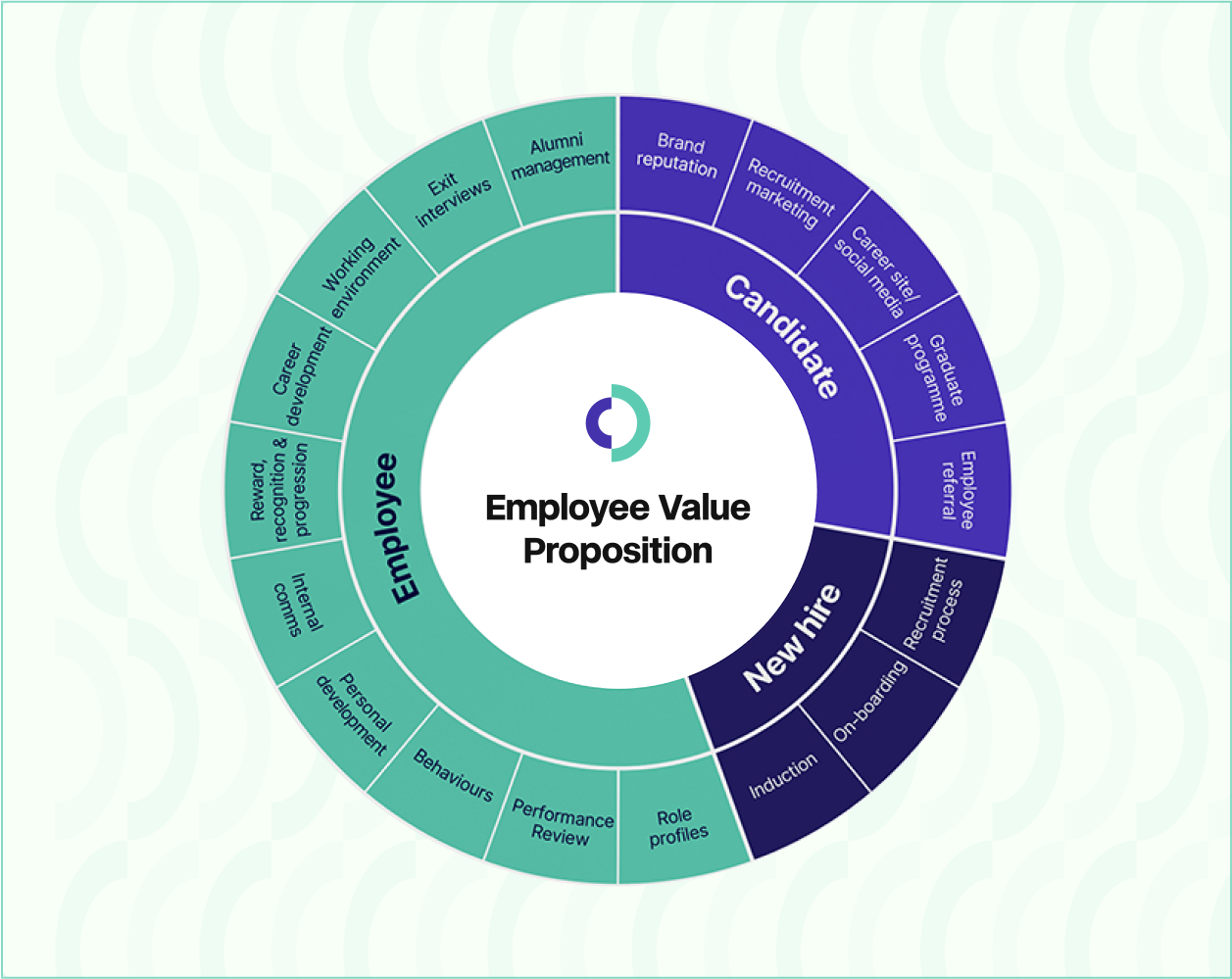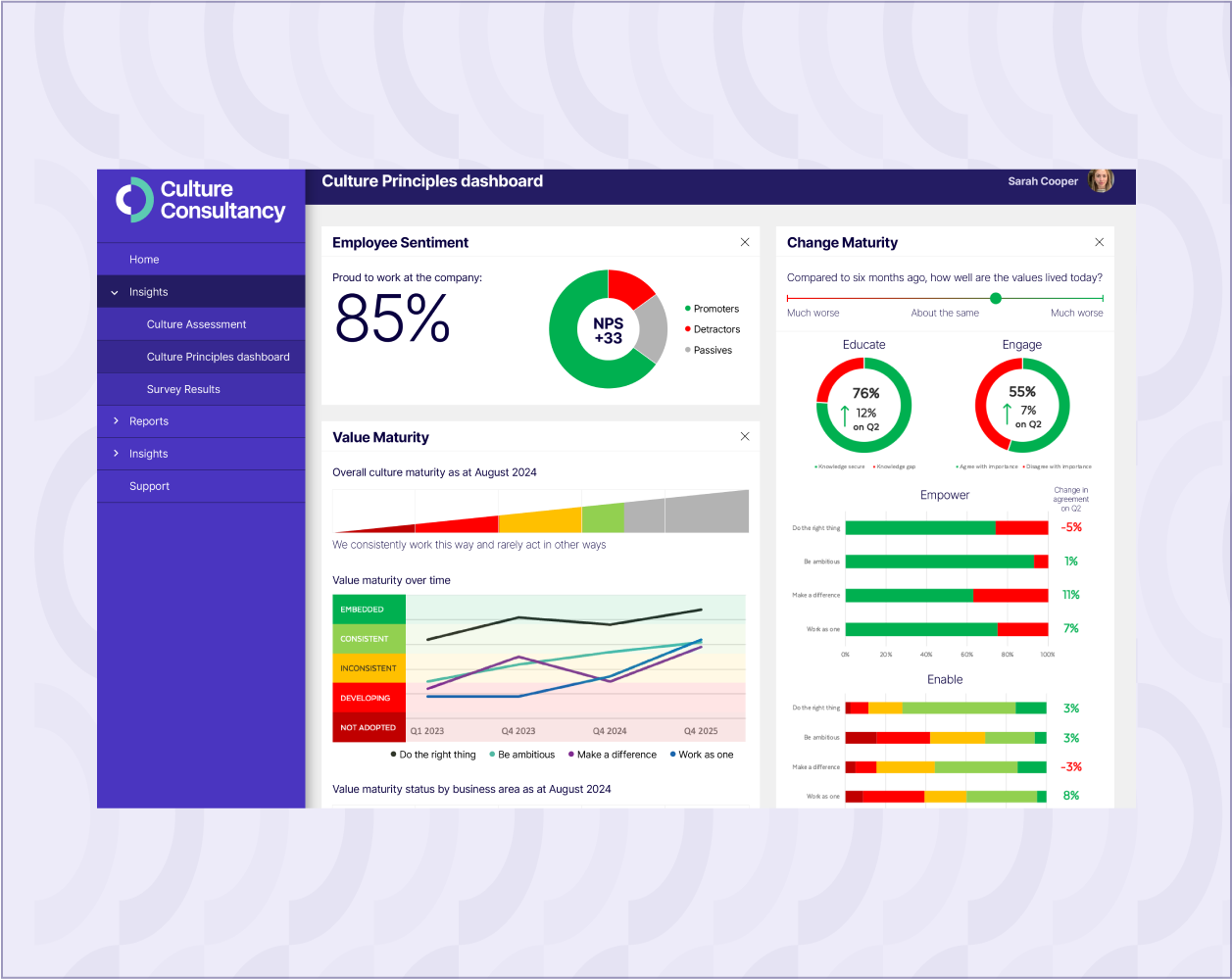
Case study - aquila
Aquila is an air traffic management services company, created as a joint venture by Thales in France and NATS in the UK.
more likely to recommend MAB as a place to work
improvement to communication (internal NPS)
of employees feel they fully understand the Mission, Vision and DNA
at the Business Culture Leadership Award
Aquila’s original focus had been to deliver Project Marshall, a UK-wide and overseas project to maintain, service and upgrade air traffic management equipment on MOD sites. But Aquila was struggling to balance several cultural influences – such as the diverse disciplines and backgrounds of their workforce, the fact that their workforce and executive team was a blend of new hires and secondees from Thales and NATS, and that they were remote teams delivering into RAF sites.
With a high-profile project underway and engineering teams distributed across multiple UK and non-UK sites, Aquila needed:
While delivering Project Marshall, teams had become very operationally-focused. This was showing signs of being unsustainable for both the duration of the project and beyond. From equipping leaders and managers with the tools to identify and present new business opportunities to helping the executive team set new ambitions for talent recruitment and diversity, Aquila needed to set a new culture that helped leaders see the venture as a long-term business rather than a single project.


No leadership development training is delivered in one fell swoop. During our work with Aquila, we dug deep into their current leadership capabilities, designed a programme to target the gaps that emerged and embedded the development into day-to-day behaviours.

No leadership development training is delivered in one fell swoop. During our work with Aquila, we dug deep into their current leadership capabilities, designed a programme to target the gaps that emerged and embedded the development into day-to-day behaviours.
To draw up the blueprint for Aquila’s new leadership behaviours, we first had to know what we were working with.
During this phase of the project we interviewed Aquila’s executives and focus groups within the wider leadership population. Our aim was to understand the truth on the ground of Aquila’s leadership effectiveness, as well as to raise awareness of leadership challenges and develop some initial recommendations about how to move forward. We also put a strong focus on the mix of seconded talent from both NATS and Thales and Aquila’s new hires. This makeup had led to a broad mix of leadership and management styles for teams on the ground. To tackle this, we dug deep into their current strengths, capabilities and development areas to help inform the way forward.
We designed and implemented a development programme for four cohort groups across the business, tailoring the delivery to different seniority levels and job roles. These sessions took the form of bespoke, two-day workshops, during which we worked with Aquila’s leaders and managers to:
We also ran DEIB training workshops for the executive team to help them recognise and mitigate their own assumptions and cognitive shortcuts, develop a shared understanding of Aquila’s DEIB challenges and shape Aquila’s overall ambitions and commitments.
Following this, we also rolled out the developmental aspects of the executive workshops to Aquila’s wider leadership population, and engaged them in the DEIB ambitions that had been shaped by the executive team.
After delivering the management and leadership workshops, the next step was to embed the learning from them into the day-to-day operations at Aquila.
We followed up the development programme with action learning group sessions. This gave Aquila’s leaders and managers an opportunity to apply what they’d learned in the workshops to practical situations. It also gave them a channel through which to share success stories and experiences from their teams. Ultimately, it allowed them to build an internal management support network that brought everyone together under the same leadership practices.
MABology is now embedded across the employee lifecycle. Staff report stronger communication, improved alignment, and a deeper sense of pride in the business. Culture is no longer an abstract idea – it’s a daily lived reality driving engagement, performance, and growth.


You designed a solution which enabled us to come together and have the most engaged and fruitful discussion I think we have had on any topic, let alone this one. Time spent sharing experiences was incredibly powerful, and you created the environment where people were able to be vulnerable, which brought us much closer together as a team. You then navigated us through the topics in a way which allowed us to align behind a common understanding and a level of ambition. I am now hugely optimistic that we can develop a plan together and execute it, which is inspiring and energising… You have given me great hope that we are now on a totally different trajectory.. it was a privilege to work with you.
Chief Delivery Officer, Aquila
Case studies
Why us?